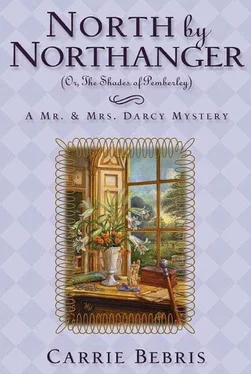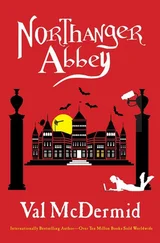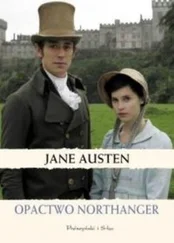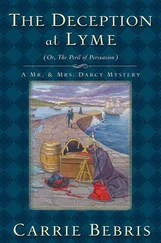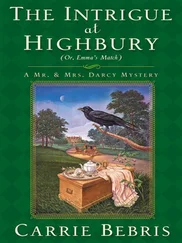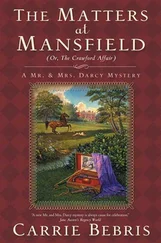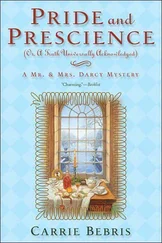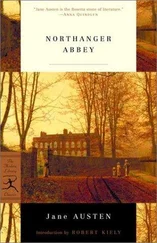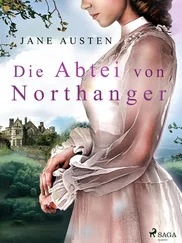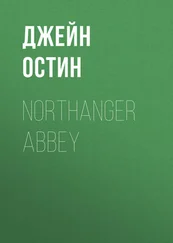The light breeze marshaled itself into a brief gust, carrying the scent of lilies even more strongly to her senses. A few dried leaves scudded into the alcove. A folded paper was among them.
“Lily, what have we found?” Elizabeth bent and retrieved the paper. It was a note in handwriting she now knew as well as her own.
My dear Mrs. Darcy ,
My lifetime is ended; my days as Pemberley’s mistress, past. I commit words to paper once more because it now falls to you to carry on my legacy .
For two and a half centuries, a treasure passed from mother to daughter. By the time my own mother placed in my hands a small chest containing the Madonna ivory, it had long been assumed that the statuette was this treasure. It is not .
When I made my pilgrimage to the cathedral library, I discovered that among the many riches held by Northanger Abbey before the Dissolution, the greatest had been the one most humble in appearance: a relic of Mary, a portion of her mantle brought from the Holy Land during the Crusades. It is this relic, which enfolds the Mother and Child I inherited, that constitutes the true treasure handed down through generations — for those who hold it, if they be of faithful heart and worthy spirit, receive the gift of grace .
A treasure such as this cannot be possessed, only held, and to you I entrust its stewardship. I could not commend it to a better caretaker. Guard it well. And in time pass it to your daughter .
Now tend to your garden, Mrs. Darcy — to your life with Fitzwilliam and the children you will raise, your own precious lilies. And know that one who has gone before you watches fondly from above .
— A. D .
Elizabeth studied the note. It bore no date. From its opening, she presumed it had been written while Lady Anne lay dying. Yet she could not imagine Darcy’s mother exerting herself at such a time to pen a second letter to an unknown future daughter-in-law, let alone a note reflecting such serenity. Nor could she begin to account for its appearance in the garden, at this moment, blown in by the breath of summer.
Lily-Anne cooed, drawing her from reverie. The infant grasped her mother’s finger and smiled.
“My own precious Lily,” Elizabeth whispered. “Your grandmama practically called you by name. However did she know?”
Other phrases in the letter had suggested similar prescience. Either Lady Anne had seen what lay ahead, or her message had been composed more recently.
“Perhaps your grandmama’s presence here is even stronger than I realized,” she said. She made the sort of playful face that very young children somehow manage to elicit from otherwise dignified adults, to the glee of her daughter. Then she held up the baby so that they two were eye to eye. “What think you, Lily-Anne? Has your grandmama’s spirit been about?”
Lily smiled again. Then her gaze moved past Elizabeth’s shoulder and she giggled.
It was her daughter’s first true laugh. Elizabeth turned round to see what had captured her delight. But nothing was behind her.
Nothing but the breeze and the fragrance of lilies.
I have now attained the true art of letter-writing, which we are always told is to express on paper exactly what one would say to the same person by word of mouth. I have been talking to you almost as fast as I could the whole of this letter.
— Jane Austen, letter to Cassandra
Dear Readers ,
After writing so many letters between fictional characters in this story, it seems only fitting that I close the book with a letter to you .
Many of you have been kind enough to write and share your thoughts about the Darcy series, and I take great pleasure in your letters. One of the most common subjects of questions is the amount of research I do for each book. I strive to be as accurate as I can, performing research not only before I begin a new story, but also the whole time I’m writing it and even after completing the initial draft — still trying to find elusive answers, confirm details in multiple sources, or reconcile conflicting information. Research discoveries often create or shape plot ideas and sometimes even change the course of the book. Other times, the influence of historical facts is more subtle, such as in descriptions or word choices .
Which leads me to a confession. While researching for North by Northanger, I was disappointed to learn that although Lilium candidum is a very old flower long associated with the Virgin Mary, it did not become known by the name “Madonna lily” until the second half of the nineteenth century — after my novel takes place. Therefore, to be historically accurate, Mr. Flynn, Lady Anne, Helen Tilney, and Elizabeth Darcy ought to call it by its older name, the Annunciation lily. I wrestled long and hard with this troublesome fact. Though William Shakespeare wrote that “a rose by any other name would smell as sweet,” I felt that in the context of this story — one that resonates with the theme of maternal bonds — calling the Madonna lily by any other name would diminish its effect. So I took a little poetic license and, for the sake of storytelling, allowed my characters a vocabulary word slightly ahead of their time. I hope you will forgive me .
I also hope you have enjoyed Elizabeth and Darcy’s latest adventure, and the opportunity to become reacquainted with (or perhaps first meet) some of the characters from Northanger Abbey, one of my favorite Austen novels. Alas, Austen wrote only six full-length books. But she also left behind numerous letters and minor works, and research for North by Northanger led me to study her letters more closely than I ever had before in order to capture the epistolary style of the era. I had forgotten how entertaining they were — as full of wit, irony, and incisive observations as her novels, with a whole new cast of characters to entertain us. If you are a fan of Austen but have never read her letters, you might want to give them a try .
Meanwhile, you can find more information about the Mr. & Mrs. Darcy series and my forthcoming books at my Web site: www.carriebebris.com. And if, while you’re there, you should happen to drop me a note, I’d be delighted to hear from you. No quill pen required!
Yours most sincerely ,
Carrie Bebris
